Praise for Counseling People with Early-Stage Alzheimer’s Disease!
New book from Robyn Yale sparks inspiration and discovery in this review from the American Society on Aging (ASA).
People with early dementia face enormous challenges in coping with their condition, yet they typically receive no personalized education or support following the diagnosis. Counseling empowers them to understand and come to terms with the illness while also learning to manage and make healthy adaptations to it. With the rapid increase in people diagnosed with early memory impairment—and demand for better support services—this groundbreaking guide gives you essential tools to become an integral partner in a process that helps people adjust to the many changes in their lives.
Presenting an innovative new counseling framework designed around the unique problems and needs arising from dementia, Counseling People with Early-Stage Alzheimer’s Disease guides the counselor and client through the many emotional, practical, and lifestyle issues to be faced.
In her easy-to-follow protocol, Robyn Yale—an internationally renowned expert on early-stage support groups (and author of Developing Support Groups for Individuals with Early-Stage Alzheimer’s Disease: Planning, Implementation, and Evaluation)—explores topics that include identity and self-esteem, resilience, relating to and educating others, stress management, and more. You will come away with an expanded repertoire of specialized skills and support roles—including coach, care planner, mediator, communications specialist, and problem solver—that will dramatically improve your ability to assist people with early dementia to
- work through complex emotions
- tap into useful coping mechanisms
- focus on capabilities
- adapt to practical circumstances in their day-to-day activities
- retain maximum autonomy over lifestyle preference
- find new ways to move forward with their lives
At the heart of this approach is the unique story behind each relationship forged between the person with dementia and the counselor. It is sure to spark inspiration and self-discovery—in yourself and in those with whom you work!

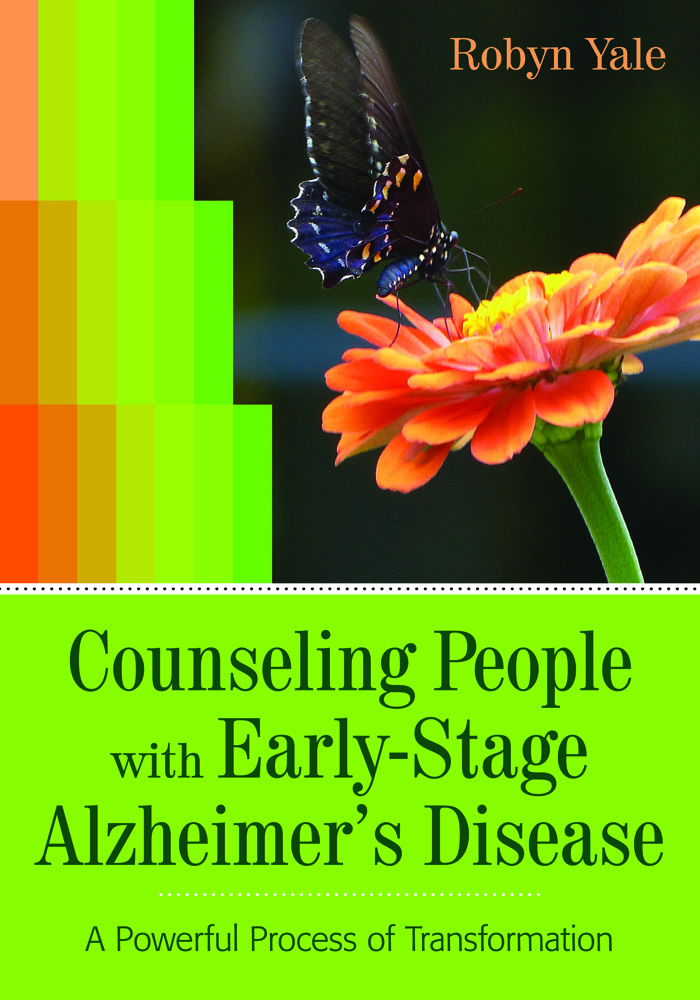
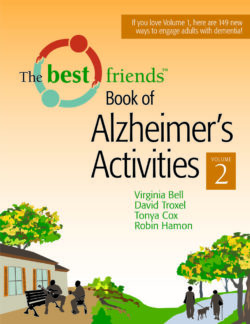

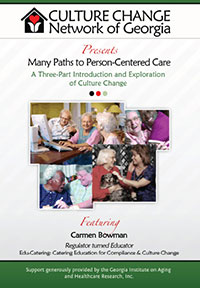
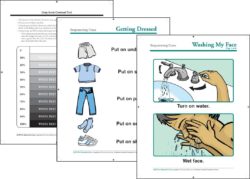
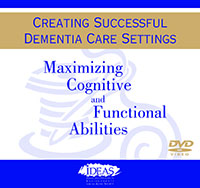
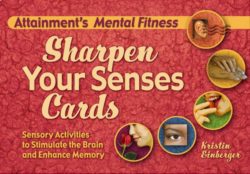
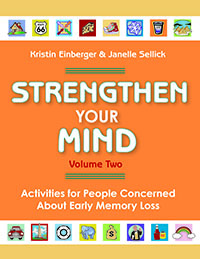
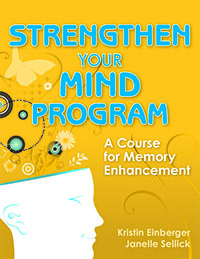
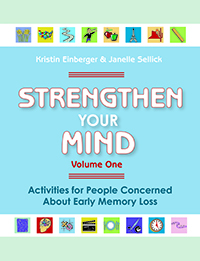
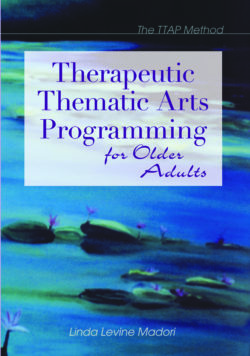

Administrator –
“In the course of making early-stage dementia a priority at the national level, the Alzheimer’s Association held several town hall meetings across the country to hear firsthand the concerns of people with early-stage dementia. Robyn Yale’s framework of clinical counseling for people with early memory loss, with its three domains of coping, addresses these concerns beautifully and provides an outstanding model for counseling this population. The unique concerns of people with early dementia—which include being marginalized by family and friends, practical issues like knowing when to stop driving, and finding purpose and meaning in a life detoured by this diagnosis—need to be dealt with sensitively and expertly, and this book gives counselors the tools they need to do just that.”
– Ginny Helms, Vice President of Chapter Services & Public Policy, Alzheimer’s Association, Georgia Chapter
Administrator –
“Once again, Robyn Yale has forged new ground. In the same way that her first book, Developing Support Groups for Individuals with Early-Stage Alzheimer’s Disease, became the standard text for facilitating support groups for people with early dementia, this profound and timely book is a must-read for professionals who are providing individualized services to this population. It provides an excellent foundation for understanding the special issues that people with early dementia face, and details a clear, compelling model for one-on-one clinical counseling based on her many years of experience. Presented in a fresh and original style, it offers an easy-to-follow template that I know from first-hand experience works extremely well; making a huge and positive difference in the lives of the counselees.”
– Suzette Binford, Programs Director, Alzheimer’s Association, Georgia Chapter
Administrator –
“Robyn Yale has been a pioneer in providing support to individuals with Alzheimer’s disease (AD) and their care partners. Her early writings are seen as essential resources for early stage support groups, and many professionals across the country and around the world have replicated her models in their communities. With the growing number of individuals with AD, as well as earlier detection, finding ways to continue to support individuals in the early stages and their care partners is imperative. With Counseling People with Early-Stage Alzheimer’s Disease: A Powerful Process of Transformation, Robyn Yale takes her pioneering work to the next level as she discusses counseling in the early stages. In this new resource, Yale takes readers through every step—from developing a counseling approach to evaluating it, and everything in between. Based on findings from a pilot program, as well as years of experience, this new book is sure to be another excellent resource from Robyn Yale for those providing support for individuals with AD and their care partners.”
– Sam Fazio, PhD, author of The Enduring Self in People with Alzheimer’s: Getting to the Heart of Individualized Care and co-author of Rethinking Alzheimer’s Care
Administrator –
“In her latest book, Counseling People with Early-Stage Alzheimer’s Disease: A Powerful Process of Transformation, Robyn Yale once again provides an invaluable resource for professionals who work with individuals in the early stages of AD or a related disorder. Building on her pioneering work with early stage support groups, the author now uses her decades of experience to offer a detailed guide to developing therapeutic relationships with this population. Drawing on the strengths of many therapeutic styles compatible for work with early stage individuals, this book provides a solid guide through the many challenges experienced by those diagnosed, including assistance in evaluating who will benefit from a therapeutic intervention, and in developing measurable goals. The strengths of the person diagnosed and the therapist are honored throughout the process, as skills and confidence are honed, benefiting everyone involved. For anyone who works in this field, this book is enlightening. For clinical professionals who work with the early stage population, this book is a critical resource.”
– Judy Filippoff, MSW, Early Stage Program Coordinator, Alzheimer’s Association, Northern California and Northern Nevada
Administrator –
“Robyn Yale is a pioneer. A trailblazer who nearly 30 years ago challenged the accepted wisdom of the time and illustrated how it was possible to support the person living with early-stage Alzheimer’s disease through self-care and group activities. In this, her new book, Robyn continues to innovate, motivate and inspire. Through an accessible description of her ‘Framework for Coping with Early Dementia’ which seamlessly links each chapter, Robyn provides a context for counselling the person with dementia that is inclusive of family and relationships. Such connections are essential ingredients for human growth: they transform lives. Powerfully. Read this book, it will transform your understanding and practice in dementia.”
– Professor John Keady, The University of Manchester, UK and Co-Editor, Dementia: the international journal of social research and practice
Administrator –
“This ground-breaking book offers an engaging and accessible guide to counselling people with early-stage dementia. Drawing on extensive clinical experience and on a carefully-evaluated pilot implementation project, Robyn Yale thoughtfully shares her unique insight and expertise, outlining a framework for coping with dementia that can guide the counselling process. This framework encompasses emotional adjustment, practical strategies and lifestyle issues, and provides a structure for identifying goals and monitoring progress. The journey through counselling, from initial assessment to ending, is vividly described and illustrated with examples, and practical resources such as intake and evaluation forms are provided to support the counsellor’s work at each stage. This book will be invaluable for all those engaged in, or embarking on, the process of counselling people with early-stage dementia. It should also be read by anyone in contact with people who have early-stage dementia, as it provides the best guide I have yet come across to understanding what it is like to experience early-stage dementia and how to respond in a helpful and positive way. Yale’s passion and commitment to helping people to live well with dementia shine through on every page, and make reading this book an exciting and deeply inspiring experience.”
– Linda Clare, PhD, Professor of Clinical Psychology and Neuropsychology, Bangor University, UK.
Administrator –
“In this pioneering work, Yale offers a dynamic, real-world, and relationship-based model for counseling persons with dementia that embraces the invaluable principles of evolution and resilience. Her framework is grounded in many years of listening to the concerns and needs of persons with memory loss with both empathy and respect, and through her wise, engaging, and informative writing, she reveals how both the client and counselor can be transformed by this practice.”
– Lisa Snyder, LCSW, author, Speaking Our Minds – What It’s Like to Have Alzheimer’s
and Living Your Best with Early-Stage Alzheimer’s
Administrator –
“The old joke asks “How do you eat an elephant?” The answer is “One bite at a time, with chili sauce. “
Through this book, Robyn has provided persons with dementia a guide to eating the elephant, with good charts and graphical representation of some of the bites, and the chili sauce of a process guide for thoughtful counselors to share the journey. It also makes crystal clear the uneven state of medical support for dementia in general and that other forms of care and support need not be shy about stepping up to the challenge of early stage dementia with their skills and healing traditions.”
– Mike Splaine www. splaineconsulting.com
Administrator –
“Robyn’s book is a helpful contribution in the continuum of care for persons with Alzheimer’s disease and their families and a remarkable complement and ‘evolution’ to her early stage group model. The material is not only well written and practical; Robyn captures the multidimensional experience of people living with Alzheimer’s disease and challenges professionals to expand their repertoire of therapeutic interventions for those facing this life-altering experience.”
– Darby Morhardt, MSW, LCSW, Research Associate Professor / Director-Education, Cognitive Neurology and Alzheimer’s Disease Center, Northwestern University Feinberg School of Medicine
Administrator –
“An excellent resource. This book is a compassionate and comprehensive guide to providing effective support to people undergoing a difficult transition. This important book fills a critical gap in caring for the person in a culture where emphasis is often placed on the disease. Yale’s advice is grounded in years of personal experience with hundreds of people with early-stage dementia.”
– Bruce L. Miller, MD
Director, UC San Francisco Memory and Aging Center
Administrator –
“[Robyn] Yale’s book offers an inspiring perspective on the potential transformations for persons with early-stage dementia, their families, and the helping professionals that work with them.”
–Leslie K. Hasche, Journal of Gerontological Social Work